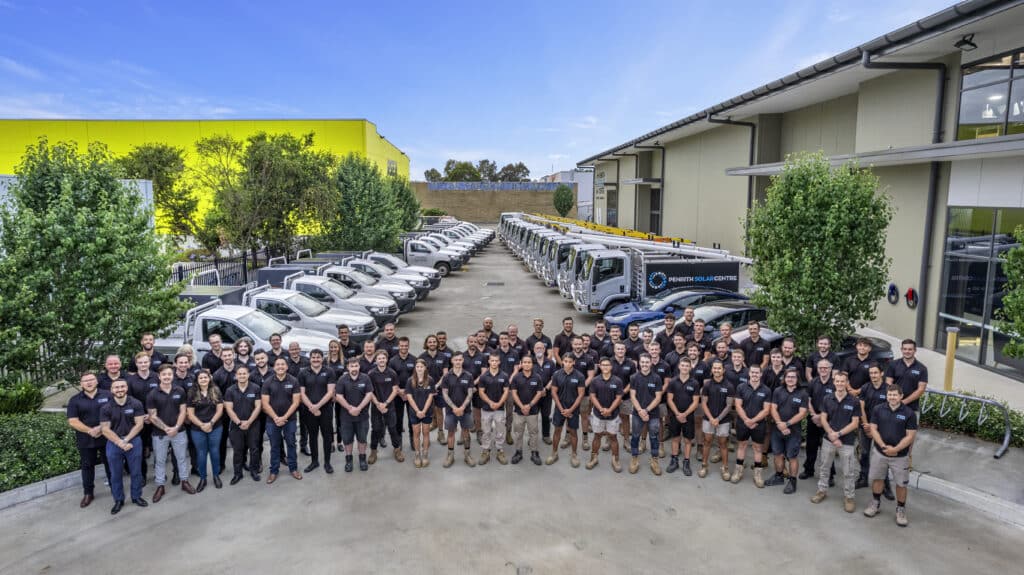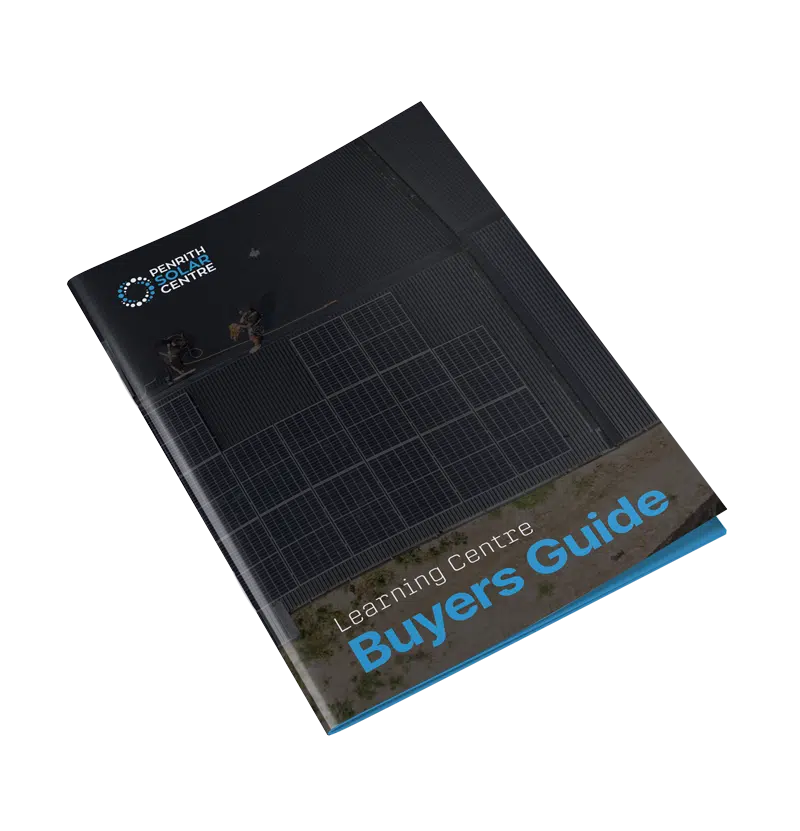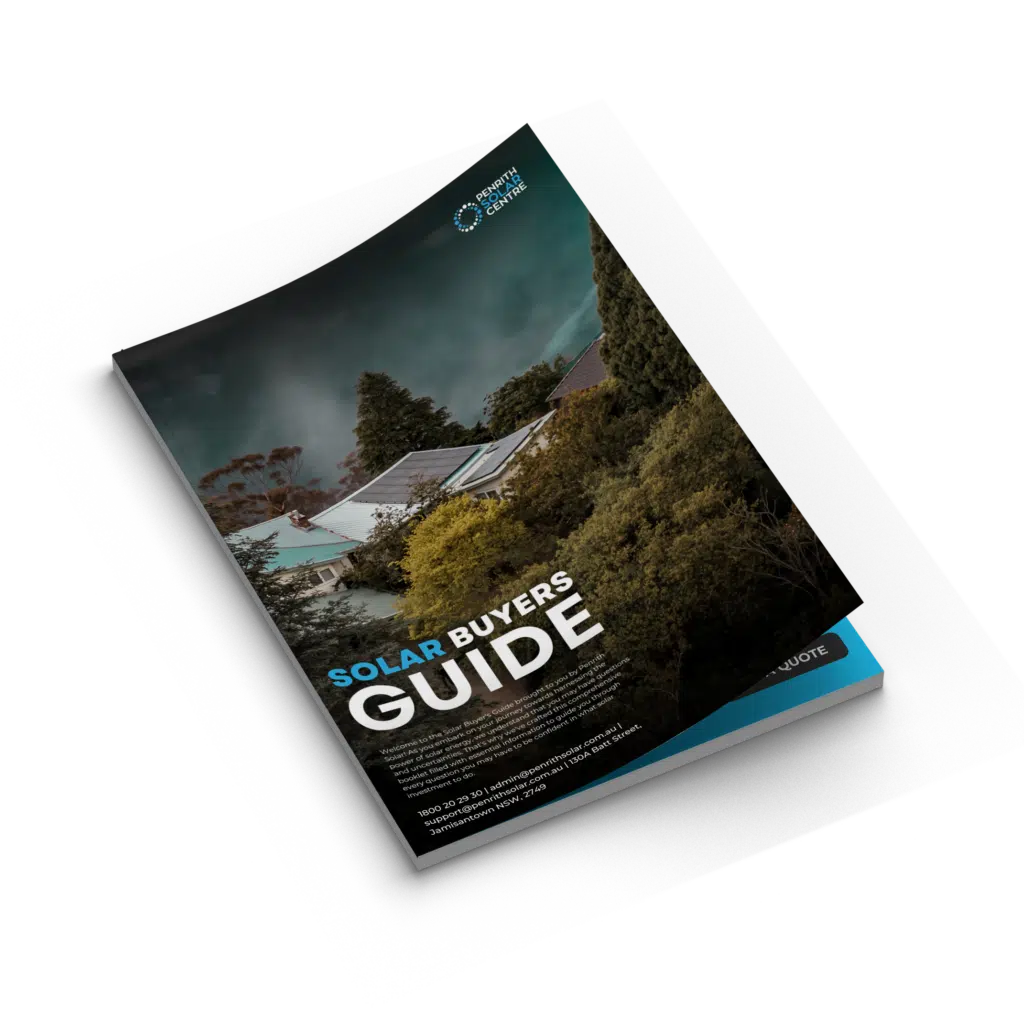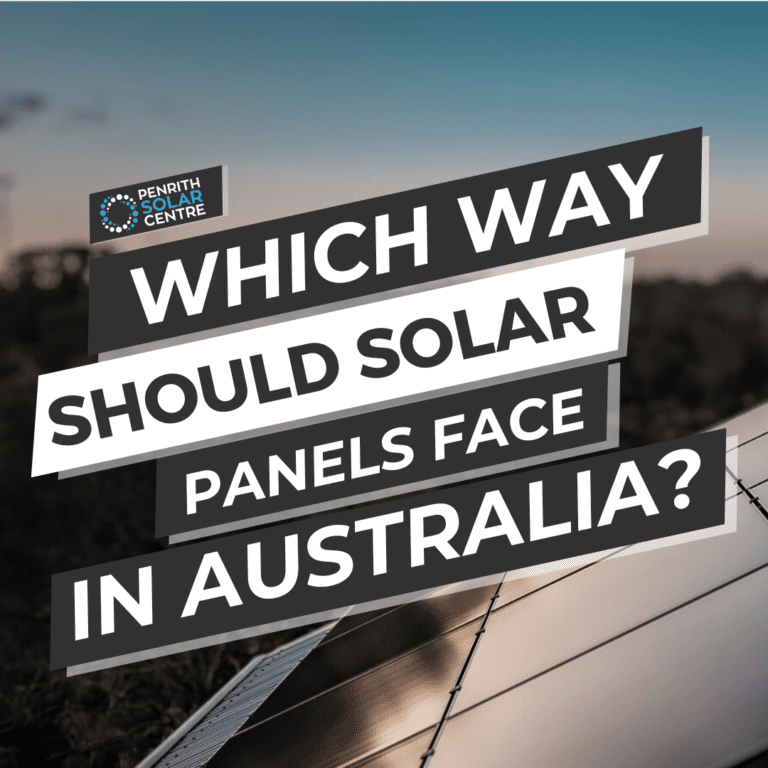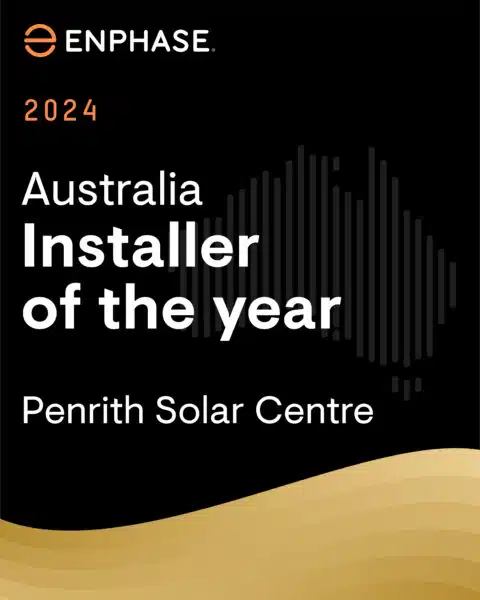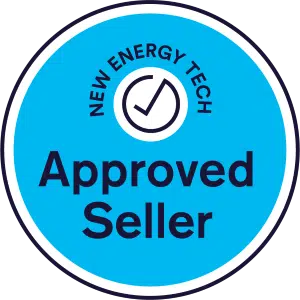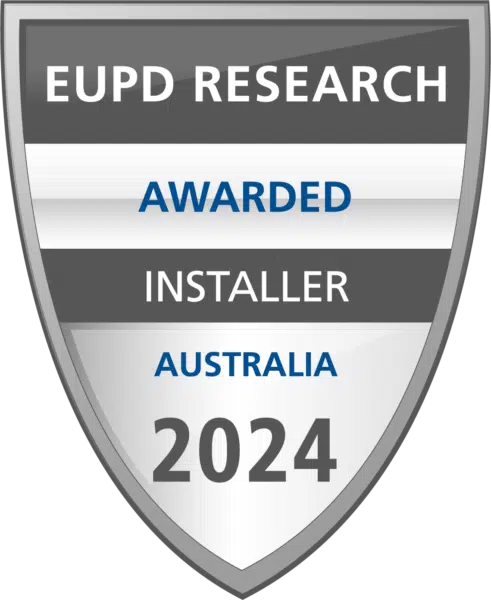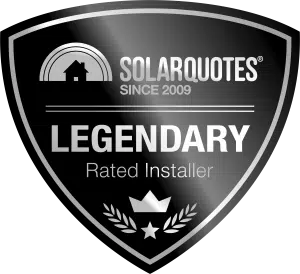Welcome to Richmond, New South Wales, where we’re upgrading an outdated solar system; a well-used 6.6kW string inverter solar system.
In this article, we’ll get into the challenges, strategies, and technologies involved in installing a new 100kW (kilowatt) solar system with three Tesla Powerwall 2 batteries.
Installation Challenges
Removing the faulty 6.6 kW string system was where our team started. If you’re interested in learning more about the differences between string systems and microinverter solar systems, you might want to check out the following article titled, Microinverters vs. String Inverters: An Honest Comparison.
The installation site posed numerous challenges. Additional days are always required by our team for roofs that have a pitch of 25° or greater. This roof was 38°!
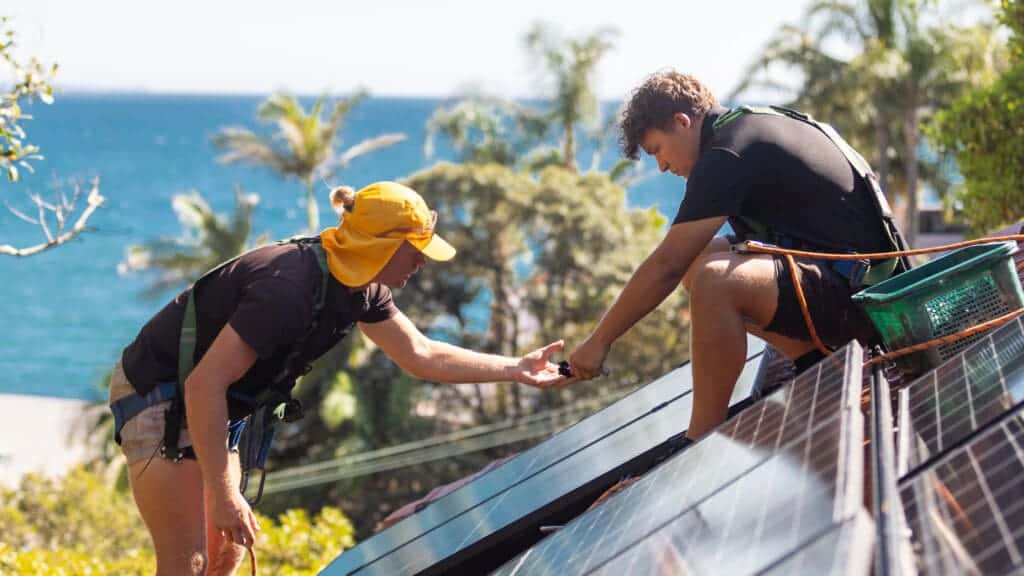
The installation process slows down on steeper roofs. A steep roof requires careful planning and follow-through to make sure everyone on the team is safe. Our team works hard and efficiently, and safety is a key concern – for everyone.
Fortunately, it was a tin roof. If you’re interested in learning more about how tin roofs are a little easier on our installation teams, you might want to check out the following article titled, How Does Your Roof Affect Your Installation?
Safety Measures
Ensuring the safety of our team and the installation site is our top priority. In addition to edge protection and safety harnesses, our team undergoes rigorous training to handle the unique challenges of working on a steep tin roof. We adhere to strict safety protocols and procedures to protect our people and your home.
The roof is unique in that it has 12 roof faces (we’ll get into that shortly). The pitch of each face is steep enough to require the team to use the rails as steps as they go about their work. They just step cautiously.
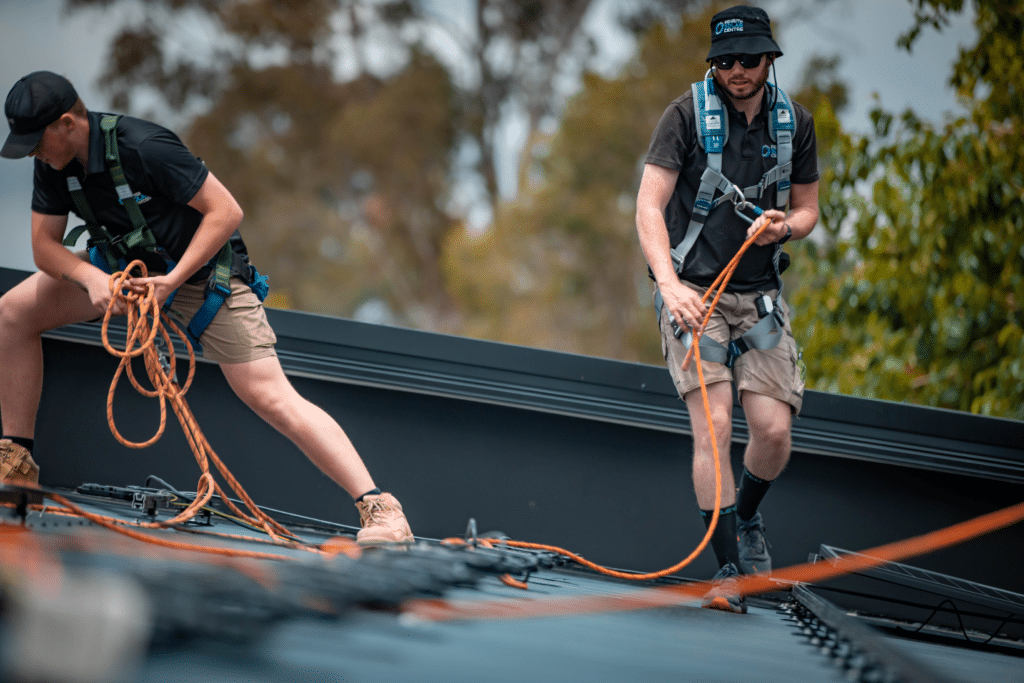
If you’re interested in learning more about how our team approaches a project, you might want to check out the following article titled, In-house Installers vs. Subcontractors: Which is Better?
Why Enphase Microinverters
Enphase microinverters play a crucial role in optimizing the performance and reliability of the solar system. Unlike traditional string inverters, which can suffer from shading issues and single point of failure, Enphase microinverters offer individual panel optimization, ensuring maximum energy production even in challenging conditions.
As you can see in the video, there are some beautiful trees surrounding the buildings. Unfortunately, shading can be the kiss of death for solar systems. Solar only produces power when the sun can shine on the panels – unobstructed.
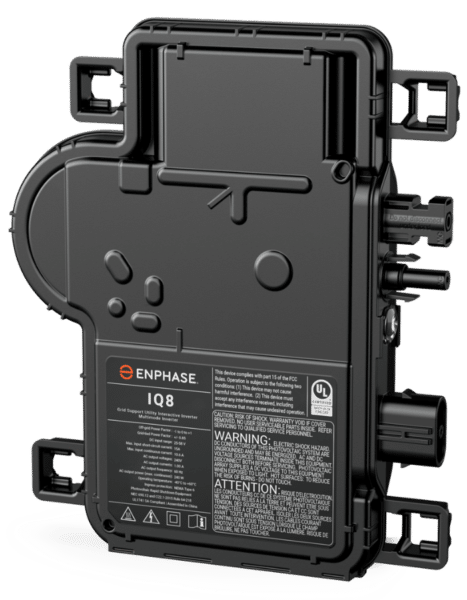
Because of this, our team planned the design with shading in mind. Which made it a good fit for one of our favourite pieces of solar technology: the Enphase IQ8AC microinverters. Microinverters make certain that energy production is maximised, and the customer can start saving on their electricity bills right away.
If you’re interested in learning more about microinverters, you might want to check out the following article titled, Myths & Misconceptions About Solar Microinverters.
Panel Installation
Installing a 100kW solar system across 12 roof faces was no small feat. Each roof face presented its own set of challenges. Some faces were smaller than others, requiring the staggered design you can see in the video.
Access to each roof face is different as well, so the installation process changed each time and new safety considerations were evaluated and solutions were put into place.
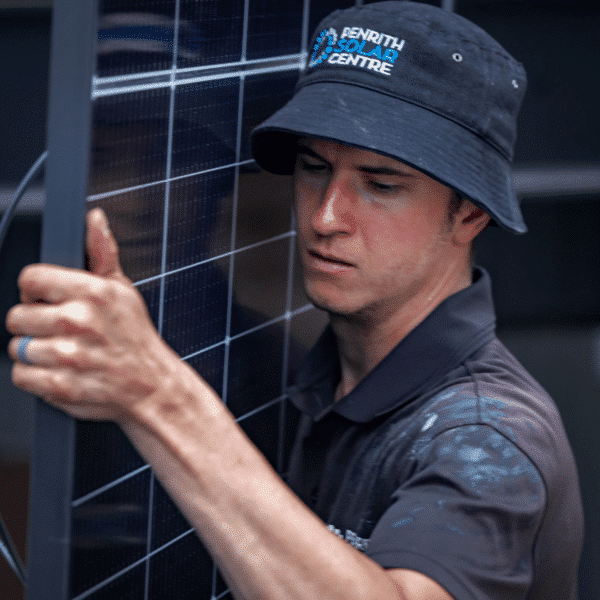
If you’re interested in learning more about how roof faces impact your solar installation, you might want to check out the following article titled, Which Way Should Solar Panels Face in Australia?
Unique Site Features
One of the most notable features of this installation site is its multiple buildings and solar-boosted hot water systems.
Integrating solar panels across three buildings requires meticulous cable management to ensure efficient power distribution. Our team rises to the challenge, planning and executing cable routes with precision to minimize visual impact while maximizing performance.
Additionally, the presence of solar-boosted hot water systems adds complexity to the design and installation process, requiring careful coordination to ensure seamless integration with the new solar system.

Switchboard and Battery Installation
At the heart of the solar system lies the main switchboard, where power distribution and battery storage are managed. On this site, our team installed three Tesla Powerwall 2 solar batteries. Installing commercial-grade equipment, including the Tesla Gateway and Powerwall Stacker Kit, requires careful consideration of space and functionality.
Our team leverages the Tesla Stacker Kit to optimize battery placement and streamline installation. The result is a seamless integration of battery storage with the solar system, providing our clients with reliable backup power and enhanced energy independence.
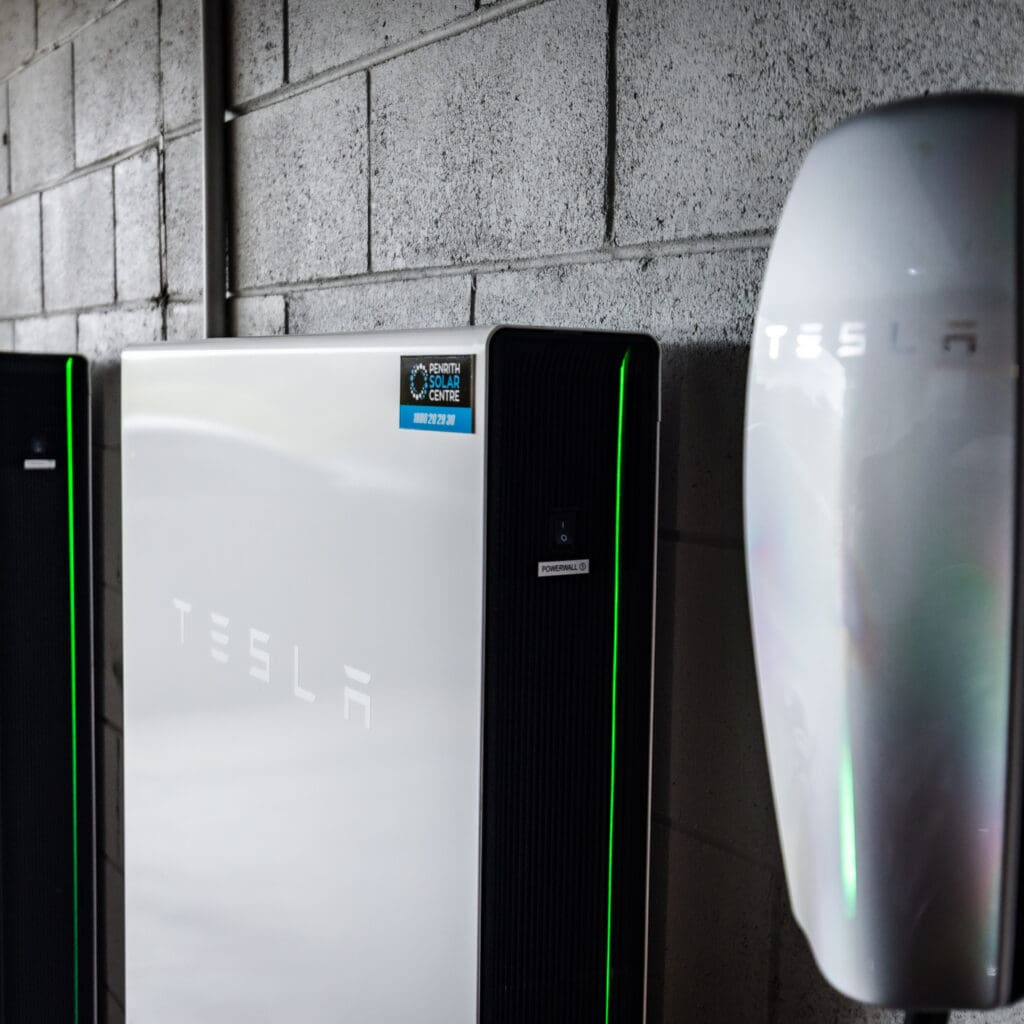
If you’re interested in learning more about the Powerwall 2, you might want to check out the following article titled, Is the Tesla Powerwall 2 Worth It? Cost, Specs, Bill Savings & More.
Additional Insights
Expanding on the project’s intricacies, it’s important to highlight the environmental impact of transitioning to solar energy. By harnessing the power of the sun, businesses and homeowners alike can reduce their carbon footprint and contribute to a cleaner, more sustainable future.
If you’re interested in learning more about solar energy, you might want to check out the following article titled, What Is Solar Energy? How It Works, How to Use It, and Pros & Cons.
Additionally, the financial benefits of solar energy cannot be overstated. With government incentives and decreasing installation costs, solar power offers a compelling return on investment for savvy consumers. Furthermore, advancements in battery storage technology, exemplified by the Tesla Powerwall 2, enable greater energy independence and resilience in the face of power outages. As the solar industry continues to evolve, it’s clear that the future is bright for renewable energy.
If you’re interested in learning more about how to begin your solar journey, you might want to check out the following article titled, How to Shop for Your Solar System.
Despite the challenges posed by the steep tin roof and multiple buildings, we have overcome every obstacle with precision and skill. Our commitment to safety, quality, and innovation shines through in every aspect of the project, providing our clients with a reliable and efficient solar solution. For those considering a commercial solar installation or looking to maximize their rooftop potential, contact our team at Pen Solar Center. We’re here to turn your solar dreams into reality.
If you’re interested in learning more about microinverter solar systems, you might want to check out the following article titled, How Much Does a Microinverter Solar System Cost?
